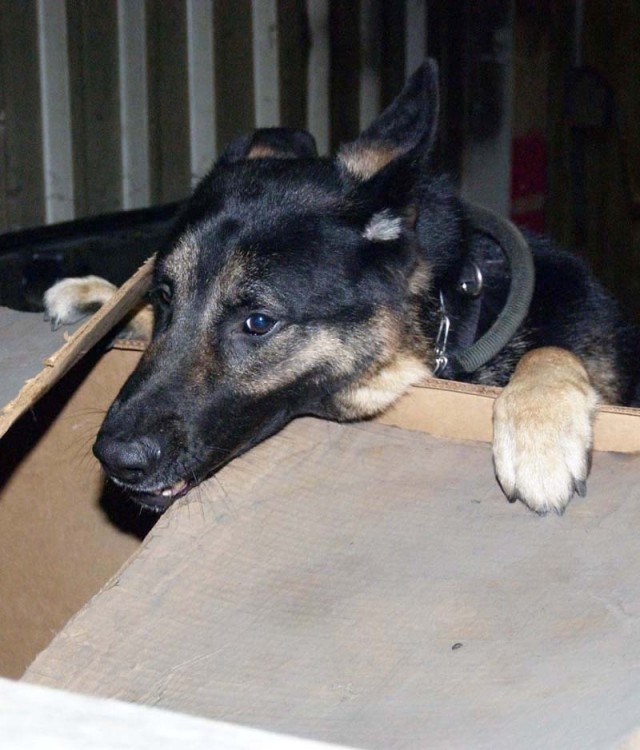MIESAU, Germany - For the Global War on Terror to be successful, it's going to take a worldwide effort.
Therefore, warriors in this effort often interact as one fighting force.
Accordingly, Sgt. 1st Class Paul Adams, a certification authority for U.S. Army Europe kennels, takes every opportunity for his dog handlers to train alongside servicemembers and law enforcement specialists from foreign countries.
"The more people you are training with, the more tools you have in your kit," said Adams, 230th Military Police Company Miesau kennel master, who supports law enforcement and force protection missions for U.S. Army Garrison Kaiserslautern.
Understandably, he readily agreed when asked by the Rheinland-Pfalz Polizei if eight of their dog teams could participate in explosive-detection training March 14 on Miesau Army Depot.
"We wanted to see how they train and work their dogs, to exchange experience and to learn from each other," said Polizeioberkommissar Thorsten Quarti, from the PolizeiprAfA$sidium (Police Headquarters) Westpfalz in Kaiserslautern, who brought along teams from Kaiserslautern, Mainz, Ludwigshafen and Pirmasens.
Quarti said this was not the first time that Rheinland-Pfalz Polizei have conducted training on a U.S. installation, but he recalled the last time as being back in the early 1990s.
Using American training kits that contain nine different types of explosive materials, the Polizei teams conducted training searches for more than four hours at two Miesau warehouses.
"We liked the huge training facility and space," said Quarti. "It was very good to train in ... because it gave us (many) opportunities to practice."
"It was interesting to see how our dogs respond to explosives (that the U.S. military) uses for training, because it is different than ours," said Quarti.
U.S. military dog teams also conducted searches, demonstrating how they use canines to find explosive materials.
"They definitely enjoyed watching our guys work," Adams said, "because it's a bit different than the way they do it."
But the end result of finding explosives, he noted, "is the same."
Pleased with the results, Adams now plans on having his dog teams train with the Rheinland-Pfalz Polizei in the future.
"These guys (Polizei) are world-class trainers and handlers, and even though we have a solid program - one of the best in the world - it never hurts to know what other people are doing," said Adams.
Besides training, the Polizei dog handlers also toured the Miesau Kennel, which is the largest Army kennel in Europe.
This facility can house close to 50 patrol narcotics and explosive detector dogs, and includes an administrative building and a large training area for dog teams to practice their skills.




Social Sharing